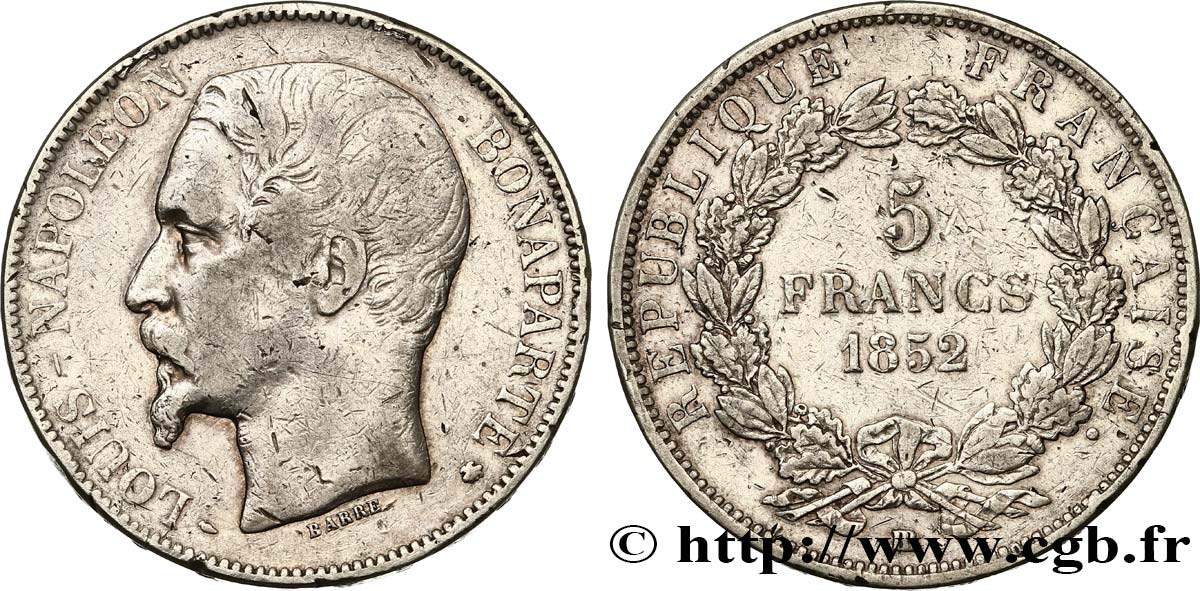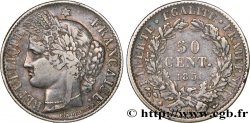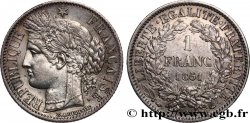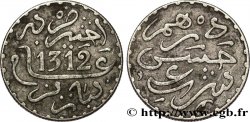fmd_473923 - 5 francs Louis-Napoléon 1852 Strasbourg F.329/3
750.00 €(Approx. 877.50$ | 652.50£)
Quantity
Add to your cart

Type : 5 francs Louis-Napoléon
Date: 1852
Mint name / Town : Strasbourg
Quantity minted : 41321
Metal : silver
Millesimal fineness : 900 ‰
Diameter : 37 mm
Orientation dies : 6 h.
Weight : 24,71 g.
Edge : en relief : ***DIEU PROTEGE LA FRANCE
Rarity : R3
Coments on the condition:
Des coups
Catalogue references :
Obverse
Obverse legend : (DIFFÉRENT) LOUIS - NAPOLEON BONAPARTE (DIFFÉRENT).
Obverse description : Tête nue de Louis-Napoléon Bonaparte à gauche ; au-dessous signé BARRE le long du cou.
Reverse
Reverse legend : REPUBLIQUE FRANÇAISE..
Reverse description : 5 / FRANCS en deux lignes dans le champ, au-dessus de 1852, dans une couronne composite de deux branches de chêne et de deux de laurier, nouées deux par deux en bas par un ruban, en ordre alterné, d’abord chêne à gauche et d’abord laurier à droite ; sous le nœud, la lettre d’atelier BB.
Commentary
Tranche B.
Slice B
Slice B








 Report a mistake
Report a mistake Print the page
Print the page Share my selection
Share my selection Ask a question
Ask a question Consign / sell
Consign / sell
 Full data
Full data











